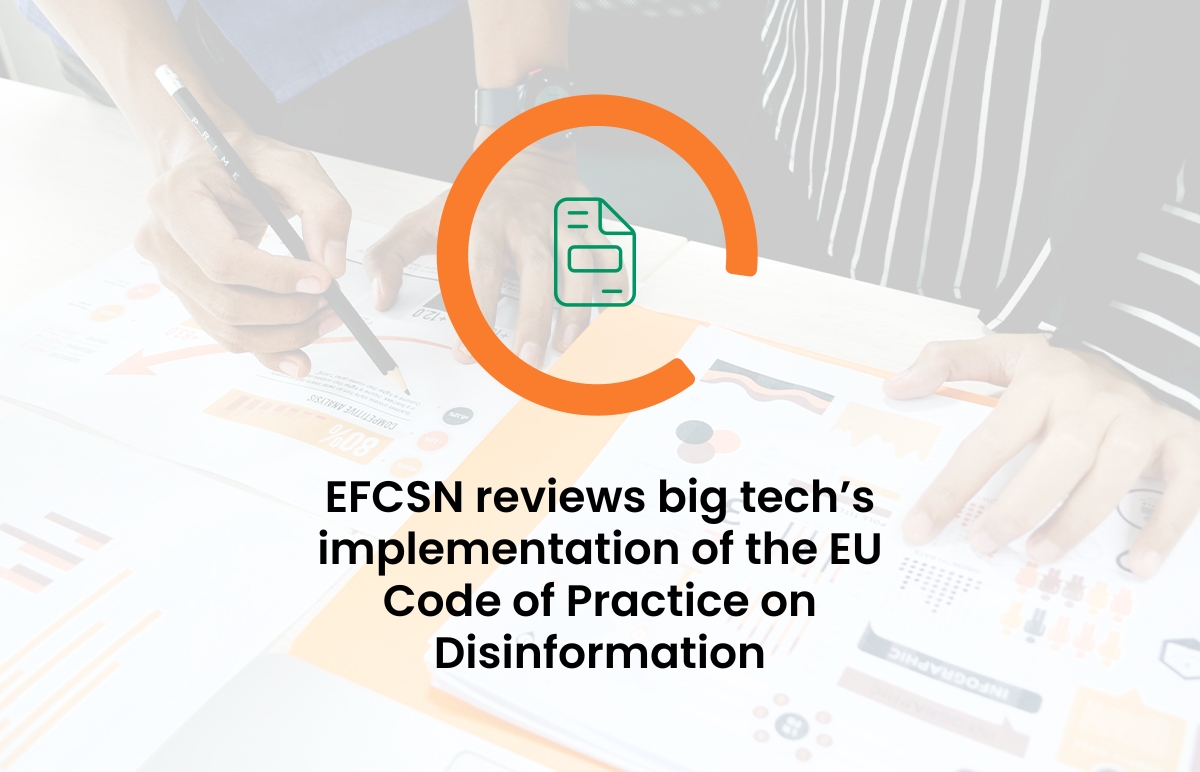
“Some platforms are reneging on their commitments and obligations”
More than a year and a half after they signed the EU Code of Practice on Disinformation, most of the major digital platforms are far from implementing the measures they committed to. Some of those companies are even misrepresenting their current policies in their reports to make them look like they are fulfilling their commitments. That is the key finding of a detailed review by the European Fact-Checking Standards Network, an association of more than 50 independent fact-checking organisations fighting disinformation in Europe.
“Some platforms are going great lengths to retort the language in their reports to make it look like their current policies align with the Code, but they don’t” said Clara Jiménez Cruz, chair of the EFCSN. An example of this is that YouTube has reported that it has ‘partnerships with EU fact-checking organisations’ in places like Myanmar or Brazil.
The analysis evaluates the implementation on YouTube, Google Search, Facebook, Instagram, TikTok, WhatsApp, Bing, and Linkedin, plus that in other platforms that are not signatories of the Code of Practice on Disinformation but whose policies are very relevant in the landscape of online disinformation: X/Twitter and Telegram. Almost all of them have been designated as very large online platforms or search engines and thus have heightened obligations under the EU Digital Services Act (DSA).

Some of the implemented actions have little impact
“Some of the platforms are reporting actions that, according to their own impact assessments, benefit only a few dozen people every six months in countries where they have millions of users”, said Jiménez Cruz, “The implementation of the Code of Practice cannot become a PR exercise for these companies”.
Microsoft’s Bing, for example, reports integrating fact-checks in search results – but by its own admission, it showed not even one of them on the first page of results in 15 different countries over a period of six months. TikTok has a fact-checking program but in some countries covered by it, less than 15 videos were reviewed over six months.
While some Code of Practice signatories have done very little, the analysis highlights how platforms that have not joined the Code continue to be key actors in spreading disinformation at scales. X-Twitter ranks worst in a survey of fact-checkers as not a single fact-checking organisation in Europe considers the company to take disinformation seriously. The EFCSN also calls for effective DSA implementation on Telegram, as its open public channels are instrumental in the implementation of disinformation campaigns.
A crucial 2024
The analysis relies on data from those companies’ last DSA and Code of Practice semiannual reports, plus the insights of the European fact-checking community. The last reporting period available for the platforms Code of Practice Reports was from January to June 2023, right before the DSA kicked into full force for the services designated as very large online platforms and search engines.
As the enforcement of the Digital Services Act entered its key stage, the analysis shows that most of the very large online platforms and search engines had not implemented even the measures they already committed to voluntarily. As some of them are preparing to deal with a complicated and election-heavy 2024, it is possible that they are now prepared to introduce them.
Even though the Code of Practice is still a self-regulatory instrument, the largest and most influential actors in the online ecosystem should be expected to be true to their word. Moreover, as the Code was already designed to become a DSA Code of Conduct that represented the “effective risk mitigation measures” required in the regulation, it should not be the case that most of those online services are still not up to their obligations months after it entered into force.
The complete analysis is available here.
Got a question? Email us at: [email protected]